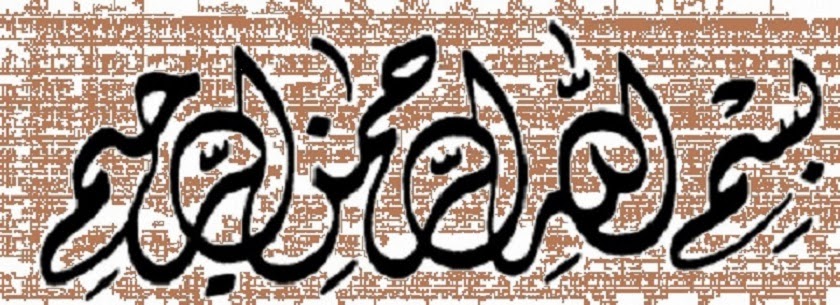Tuesday, November 21, 2023
Thursday, November 02, 2023
The History of Palestine and Gaza: The Amalek (Part 1)
The well-known historian Ibn
Khaldoon (may Allah have mercy on him) writes:
Realise, the generations
after the flood of Nooh (Peace be upon him) were formed by the first nation of ‘Aad
(there were two nations of ‘Aad), Thamood, the Amalek, Judays, Umaym, Jurham,
Hadramawt and those related to them where from the pure Arabs – all of them where
from the children of Saam the son of Nooh. End quote.
Taareekh Ibn Khaldoon (2/18)
Imam Ibn Jarir at-Tabari
(may Allah have Mercy on him) wrote:
The Amalek dispersed
in the land. Some settled in the East, some in Oman, others in Hijaz and the
rest in Sham and Egypt. From those who settled in Sham were commonly known as the “The Giants” (الْجَبَابِرَةُ) – they were the Canaanites (الْكَنْعَانِيُّونَ).
Tareekh ar-Rusul wa al-Mulook
(1/140)
Jewish Interpretations
and Position on the Amalek
The term “Amalek” within
scripture often appears as a generalised derogatory term for the natives that settled in the Sham area and according to some interpretations, they are regarded as enemies to the Jewish people.
There are several references to this in the Old Testament:
·
In Deuteronomy
25:17–19, The Israelites are specifically commanded to "blot out the
remembrance of Amalek from under heaven" once they have taken
possession of the promised land in retribution for "what Amalek did to
[them] on the way as [they] were coming out of Egypt."
·
In Deuteronomy
7:1–16 and Deuteronomy
25:16–18, they are commanded to utterly destroy all the inhabitants
of the idolatrous cities in the promised land and their livestock; scripture
purports that King
Saul ultimately loses favor with Yahweh for failing to kill King Agag and
the best livestock of the Amalekites in 1 Samuel 15 in
defiance of these commandments.
·
In 1 Samuel 15:1–9,
Samuel identifies Amalek as the enemy of Israelites, saying "Thus says the
Lord of hosts: I will punish Amalek for what he did to Israel, how he ambushed
him on the way when he came up from Egypt."[18] God
then commands Saul to destroy the Amalekites.[19] In 1 Samuel 15:33,
Samuel identifies king Agag of
Amalek as an enemy and killer, saying "As your sword has made women
childless, so shall your mother be childless among women."
·
According to 1 Samuel 30:1–2,
the Amalekites invaded the Negev and Ziklag in the Judean/Philistine border
area towards the end of the reign of King Saul,
burning Ziklag and
taking its citizens away into captivity. The future king David led a successful mission against
the Amalekites to recover "all that the Amalekites had carried away".[20]
·
In 2 Samuel 1:5–10,
an Amalekite tells David that he found Saul leaning on his spear after the battle of Gilboa. The Amalekite claims he
euthanized Saul, at Saul's request, and removed his crown.[21] David gives orders to his
men to kill the Amalekite for killing the anointed king,
believing him to be guilty by admission.[22]
The Isreali PM referring to the citizens of Palestine as being Amalek during the Gaza war, 2023
Although interpretations differ, many orthodox Rabbis have explained that hating and removing the Amalek is a religious obligation. Here are some refrences:
-Rabbi Jonathan Sachs suggests that the enmity towards the Amalek is greater than the enmity towards the Coptic Egyptians who enslaved them because the hate that the Egyptians had towards the Children of Israel was rational due to “a fear of disapproval (as their population was growing), thus can be rationed with.” However, “unconditional, irrational hatred cannot be reasoned with.” Therefore, “it (the enmity) cannot end and will persist.”
-Lubavitcher
Rebbe explains these passages to mean that “the battle with them is daily.”
-Rabbi Baruch Rosenblum opined that the term 'Amalek' is “an acronym that represents evil inclinations.”
source: https://www.youtube.com/watch?v=zRQHeke1bJQ
The next post will look at the spread of Islam amongst the native Arabs of Sham.



